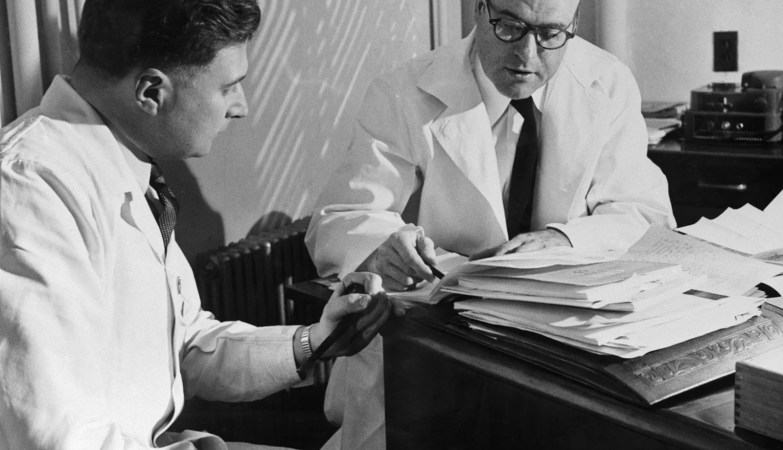Immune System As people age, their immune system undergoes changes that can affect its ability to respond to vaccines effectively. Vaccination remains a critical tool for preventing infectious diseases, particularly in older adults who are more vulnerable to severe illness. Immune System This comprehensive guide explores the intersection of vaccines and the aging immune system, providing an in-depth look at how aging impacts vaccine efficacy and what can be done to enhance vaccination outcomes in older populations.
Understanding the Aging Immune System
To appreciate how vaccines interact with the aging immune system, it’s essential to understand the fundamental changes that occur as people grow older.
Immunosenescence
- Definition: Immunosenescence refers to the gradual deterioration of the immune system associated with aging. Immune System It involves changes in both the innate and adaptive immune systems.
- Key Changes: Significant changes include a reduction in the production of immune cells (e.g., T cells, B cells), altered cytokine profiles, and decreased efficacy of immune responses.
Impact on Vaccine Response
- Reduced Efficacy: Aging often results in a diminished response to vaccines due to impaired immune cell function and lower antibody production.
- Increased Susceptibility: Older adults may have a higher risk of vaccine-preventable diseases because of their weakened immune responses.
Mitigating Effects of Aging
- Adjuvants and Enhanced Formulations: Vaccine formulations with adjuvants or higher antigen doses can help improve immune responses in older adults.
- Personalized Vaccination Strategies: Immune System Tailoring vaccination schedules and dosages based on individual health status and immune function may enhance efficacy.
In conclusion, understanding immunosenescence and its effects on vaccine responses is crucial for developing effective vaccination strategies for older adults.
The Importance of Vaccination in Older Adults
Vaccination is particularly important for older adults due to their increased vulnerability to certain diseases and complications.
Increased Risk of Infectious Diseases
- Higher Incidence: Older adults are at greater risk for severe outcomes from infections such as influenza, Immune System pneumococcus, and shingles due to weakened immune responses.
- Complications: Infections can lead to serious complications, including hospitalization and mortality, in older populations.
Benefits of Vaccination
- Disease Prevention: Vaccines help prevent infections and their complications, reducing the burden of disease in older adults.
- Quality of Life: Effective vaccination can improve quality of life by preventing illness, reducing healthcare costs, and maintaining independence.
Recommended Vaccines
- Influenza: Annual flu vaccinations are recommended to protect against seasonal influenza and reduce the risk of severe illness.
- Pneumococcal: Pneumococcal vaccines protect against pneumonia and other pneumococcal diseases, which are more common in older adults.
- Shingles: The shingles vaccine helps prevent herpes zoster (shingles), a painful condition that becomes more common with age.
In conclusion, vaccination is a critical component of preventive healthcare for older adults, helping to reduce the incidence of infectious diseases and improve overall health and well-being.
Challenges in Vaccine Development for the Elderly
Developing vaccines specifically for older adults presents unique challenges that must be addressed to ensure effectiveness and safety.
Immunological Considerations
- Reduced Immune Response: Older adults often have a less robust immune response to vaccines, necessitating the development of formulations that can overcome these challenges.
- Age-Related Changes: Vaccine development must account for age-related changes in immune system function and ensure that vaccines are effective in this population.
Formulation and Dosage
- Higher Antigen Doses: Higher doses of vaccine antigens or the use of adjuvants can enhance immune responses in older adults.
- Adjuvants: Adjuvants are substances that enhance the body’s immune response to a vaccine, making them particularly useful for older populations.
Clinical Trials and Research
- Inclusion of Older Adults: Ensuring that older adults are adequately represented in clinical trials is crucial for evaluating vaccine efficacy and safety.
- Long-Term Studies: Long-term studies are needed to assess the durability of vaccine-induced immunity and the need for booster doses.
In conclusion, addressing the challenges in vaccine development for older adults is essential for creating effective vaccines that can improve immune responses and protect against diseases.
Strategies to Enhance Vaccine Efficacy in the Elderly
Several strategies can be employed to improve vaccine efficacy and ensure optimal protection for older adults.
Adjuvant Use
- Mechanisms of Action: Adjuvants enhance vaccine effectiveness by stimulating the immune system and improving the body’s response to the vaccine.
- Types of Adjuvants: Various adjuvants, such as aluminum salts, oil-in-water emulsions, and Toll-like receptor agonists, are used to boost vaccine responses.
Vaccine Boosters
- Importance of Boosters: Booster doses can help sustain immunity over time, particularly in older adults who may experience waning vaccine-induced protection.
- Scheduling: Determining the optimal timing and frequency of booster doses is essential for maintaining effective immunity.
Personalized Vaccination Plans
- Health Assessments: Tailoring vaccination plans based on individual health status, comorbidities, and previous vaccine responses can enhance effectiveness.
- Customized Vaccines: Developing vaccines with specific formulations or dosages for older adults may improve immune responses and protection.
In conclusion, employing strategies such as using adjuvants, administering booster doses, and personalizing vaccination plans can enhance vaccine efficacy and provide better protection for older adults.
The Role of Nutrition in Vaccine Response
Nutrition plays a crucial role in supporting the immune system and influencing vaccine responses, particularly in older adults.
Essential Nutrients
- Vitamins and Minerals: Nutrients such as vitamins A, C, D, and E, along with minerals like zinc and selenium, are important for maintaining immune function and enhancing vaccine responses.
- Antioxidants: Antioxidants help reduce oxidative stress and inflammation, supporting overall immune health and improving vaccine efficacy.
Dietary Patterns
- Balanced Diet: A diet rich in fruits, vegetables, whole grains, and lean proteins provides the essential nutrients needed for a robust immune system.
- Supplementation: In cases of nutritional deficiencies or specific needs, dietary supplements can help support immune health and improve vaccine responses.
Impact of Malnutrition
- Impaired Immune Function: Malnutrition can impair immune responses and reduce vaccine efficacy, making it crucial to address nutritional needs in older adults.
- Nutritional Interventions: Implementing nutritional interventions and addressing deficiencies can enhance vaccine effectiveness and overall health.
In conclusion, proper nutrition supports immune function and plays a vital role in enhancing vaccine responses. Ensuring adequate nutrient intake through diet and supplementation can improve vaccine efficacy in older adults.
Psychological Factors Affecting Vaccine Uptake in Older Adults
Psychological factors can significantly impact vaccine uptake and adherence among older adults, influencing their overall health and protection against diseases.
Perceptions and Attitudes
- Vaccine Hesitancy: Misconceptions, fears, and lack of trust in vaccines can lead to hesitancy and lower vaccine uptake among older adults.
- Education and Awareness: Providing accurate information and addressing concerns about vaccines can help improve attitudes and increase vaccine acceptance.
Access and Convenience
- Barriers to Access: Physical limitations, transportation issues, and lack of access to healthcare facilities can affect vaccine uptake among older adults.
- Convenience Strategies: Offering vaccines in convenient locations, such as pharmacies and community centers, and providing mobile vaccination services can improve access.
Support and Motivation
- Social Support: Encouraging support from family, friends, and healthcare providers can motivate older adults to get vaccinated and adhere to vaccination schedules.
- Healthcare Provider Recommendations: Strong recommendations from healthcare providers can influence vaccine decisions and increase uptake.
In conclusion, addressing psychological factors and improving access to vaccines are essential for enhancing vaccine uptake and ensuring that older adults receive the protection they need.
Emerging Trends in Vaccine Technology for Older Adults
Advancements in vaccine technology offer new possibilities for improving vaccine efficacy and safety in older adults.
mRNA Vaccines
- Mechanism of Action: mRNA vaccines use messenger RNA to instruct cells to produce antigens and stimulate an immune response. They have shown promise in recent vaccine developments.
- Potential Benefits: mRNA vaccines offer flexibility in design, rapid development, and the potential for enhanced efficacy in older populations.
Nanoparticle Vaccines
- Technology Overview: Nanoparticle vaccines use nanoscale particles to deliver antigens and adjuvants, improving immune responses and targeting specific immune cells.
- Advantages: Nanoparticle vaccines may offer improved stability, controlled release, and enhanced immune stimulation, benefiting older adults.
Universal Vaccines
- Concept: Universal vaccines aim to provide broad protection against multiple strains of a pathogen, reducing the need for frequent updates and boosters.
- Applications: Research into universal vaccines for influenza and other diseases has the potential to improve long-term protection and simplify vaccination schedules.
In conclusion, emerging trends in vaccine technology, such as mRNA and nanoparticle vaccines, offer exciting opportunities for enhancing vaccine efficacy and safety in older adults.
Future Directions and Research Priorities
Ongoing research is crucial for advancing our understanding of vaccine responses in older adults and improving vaccination strategies.
Research Focus Areas
- Immune System Mechanisms: Investigating the underlying mechanisms of immunosenescence and its impact on vaccine responses can inform the development of more effective vaccines.
- Vaccine Adjuvants: Research into new adjuvants and formulation strategies can help enhance vaccine efficacy and safety for older adults.
Public Health Initiatives
- Vaccination Programs: Developing targeted vaccination programs and policies to address the specific needs of older populations can improve vaccine uptake and effectiveness.
- Educational Campaigns: Increasing public awareness and education about the importance of vaccination for older adults can help reduce vaccine hesitancy and improve health outcomes.
Collaboration and Innovation
- Collaborative Research: Collaboration between researchers, healthcare providers, and policymakers is essential for advancing vaccine research and improving vaccination strategies.
- Innovation in Delivery: Exploring innovative vaccine delivery methods, such as needle-free vaccines and self-administration devices, can improve accessibility and adherence.
In conclusion, future research and public health initiatives are critical for advancing vaccine technology, improving vaccine responses in older adults, and promoting better health outcomes through effective vaccination strategies.
Conclusion
The intersection of vaccines and the aging immune system is a complex and vital area of research. As the population ages, understanding the challenges and opportunities in vaccine development and administration becomes increasingly important. By addressing the impact of aging on immune responses, enhancing vaccine efficacy, and exploring new technologies, we can improve health outcomes for older adults and support their overall well-being. Continued research, innovative strategies, and public health initiatives will play a crucial role in ensuring that vaccines remain a powerful tool for promoting health and longevity in an aging population.








